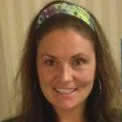Research has delineated that creating online collaborative communities and increasing student engagement all function to increase student successful outcomes. This causal-comparative study was conducted using student data from four sections of hybrid, introductory anatomy and physiology courses over the 2011 and 2012 calendar years. The study included two sources of data: unit exam scores and student surveys. Analysis of the unit exam scores determined that there were statistically significant differences in student success and achievement by the implementation of the following web-enhanced technologies: a) discussion boards, b) Breeze, and c) Wiki tools. In the scope of this study, student success and achievement was defined as a student earning a C (70%) or higher at the completion of the course.
There were a total of 29 surveys conducted per each unit during the 2012 semesters that related to the web-enhanced technologies implemented into the course: Discussion boards, Breeze, and Wiki tools. Demographic data was also compiled on all of the students enrolled in the classes during this study to demonstrate that there is no specified niche or trend seen in the students enrolling for this particular course. Unit 1 was used as a baseline to compare the students from the two years. It was determined that the students were not significantly different in aptitude levels at the beginning of the courses based on their Unit 1 exam scores.
Inferential statistical analysis was done to examine student success and achievement using the following tools: t-test of independent means of the variables, mean, standard deviation, and magnitude of effect. The findings of this study indicate that the web-enhanced technology Wiki tools provided the largest increase in student success and achievement in the hybrid, introductory anatomy and physiology course. Descriptive analysis of the surveys revealed that more than a third of each class felt that the implemented web-enhanced technology functioned to increase collaboration amongst the students and helped to emulate a traditional, face-to-face formatted course.
The study included four recommendations for practice and nine recommendations for further research. A couple of recommendations for practice included using a single web-enhanced technology for the duration of the semester and having instructors and students complete tutorial sessions for the chosen technology being implemented. Examples of recommendations for research include replicating this study at other institutions and comparing face-to-face, traditional classes to hybrid courses within the same STEM discipline.
A recording of this presentation is available.
Click the button to the right to access the session archive.

 Jacqueline Levy, Department of Educational Leadership , Flagstaff, AZ, USA
Jacqueline Levy, Department of Educational Leadership , Flagstaff, AZ, USA
I am trying to go this course
Hello, please log into the conference with your username and password obtained when you registered. Once you are logged in, you will be able to see the button to enter the session.
Course link not working??
Hi! We can’t get in either (Jacky Levy and I) Jacky is a presenter and I’m a co-author. We are working on it!
HI everyone! This is Jacqueline and hopefully soon we will be able to interact through our scheduled room. We are experiencing difficulties entering the room.
How is everyone today?
Please go here:
https://squirrel.adobeconnect.com/_a751959191/tcc2018_1
If anyone is trying to get into this session, please use one of the links for any other session being held in Track A. The link on this page doesn’t work, but any other Track A link will bring you to the correct room.
Thank you!